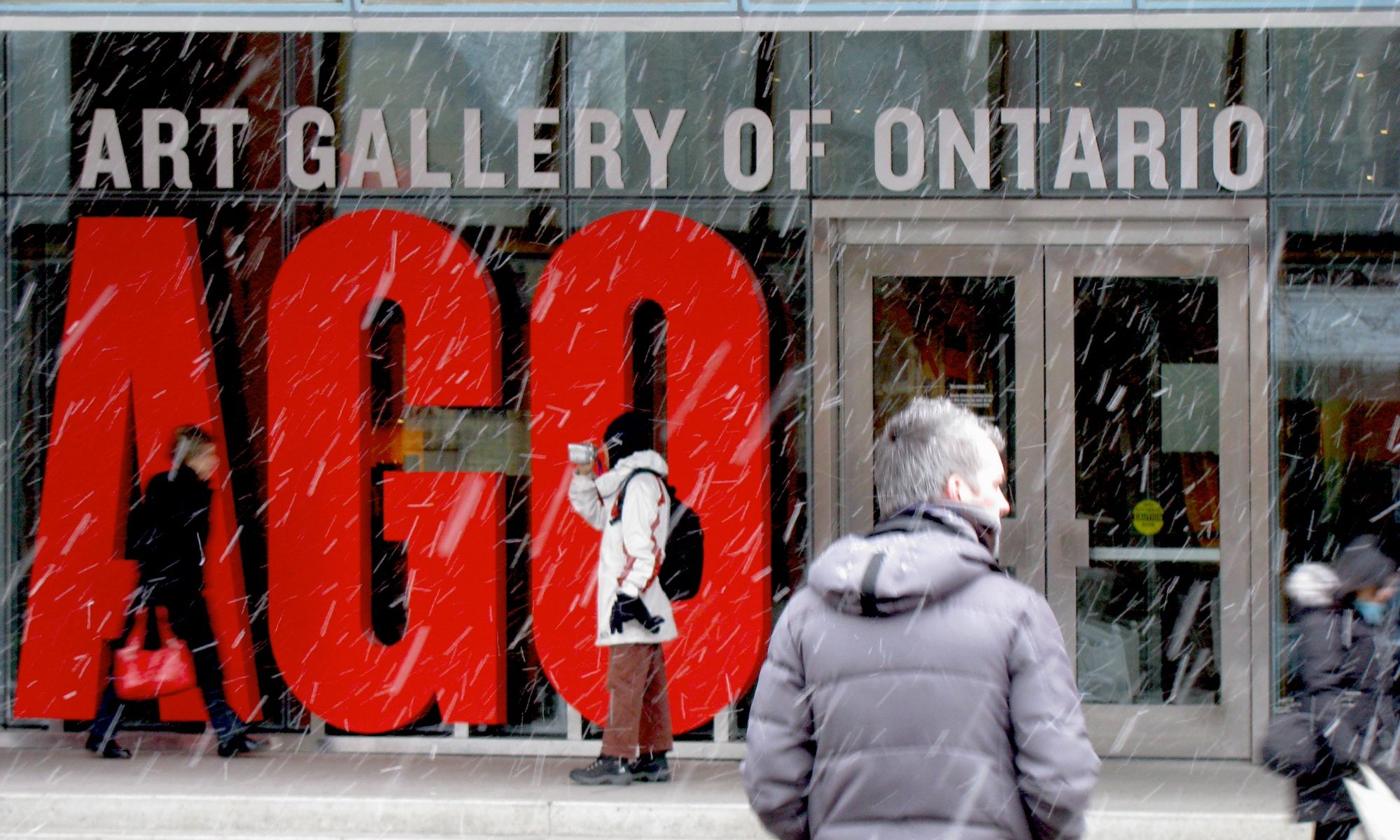The Art Gallery of Ontario in Toronto Photo by jphilipg, via Flickr
A letter addressed to the board of trustees of the Art Gallery of Ontario (AGO) by the Toronto-based Indigenous Curatorial Collective (ICCA) is demanding answers about the circumstances of curator Wanda Nanibush’s sudden departure last November. The letter, titled Let Wanda Speak, requests that “the AGO release Nanibush from any legal obligations preventing her from speaking publicly about her tenure and dismissal, about how she sees what happened and why”.
News that Nanibush, the first curator of Canadian and Indigenous art at the AGO, was leaving the institution shocked the Canadian art world. The news was linked to a leaked letter accusing her of “posting inflammatory, inaccurate rants against Israel”. That letter, verified by Hyperallergic and The Global and Mail, was sent to the AGO on 16 October by Israel Museums and Arts, Canada (IMAAC), an organisation set up to support the Israel Museum in Jerusalem and Israeli grassroots arts organisations. It was signed by members of IMAAC's leadership team.
The letter accused Nanibush, who was a jurist for the recent 2023 Sobey Art Award, Canada’s leading contemporary art prize, of “hate speech”. It cited an article she wrote for the now defunct Canadian Art magazine that drew links between the Indigenous Canadian and Palestinian experience. In it she wrote: “Colonisation marks a before and after where identity is radically altered by loss.”
Since then Canadian artists, writers and cultural workers have been among the signatories to three separate letters criticising the AGO over Nanibush’s dismissal. One of them, an open letter to the AGO with more than 3,500 signatures, begins by expressing “outrage at the recent push out of Wanda Nanibush from her position” as a result of “the bullying of the museum by pro-Israel art collectors and donors”.
A second letter, entitled “A Statement of Concern from Members of the International Arts Community to Institutions Worldwide”, was signed by more than 100 Indigenous artists, curators and professors from Canada and around the world. A third letter, published on 28 November and signed by 40 Governor General Award-winning artists, also called for accountability from the AGO: “The forced departure of Wanda Nanibush is an act of political censorship with shades of a new McCarthyism.”
In an open letter published subsequently, on 30 November, AGO director Stephen Jost wrote: “The AGO, along with many other cultural institutions, is being asked to better define the rights and limits of political and artistic expression in a locally diverse but globally complex environment. We will go through a process to listen, to understand multiple perspectives and then together we will articulate our institutional position.”
This response was unsatisfactory to the ICCA, whose letter criticises Jost’s for “apparently assum[ing] the Indigenous arts community will be willing to work with the AGO in the future—that the harms caused are focused on Nanibush alone and that her dismissal does not greatly affect us all. […] We require transparency and inclusion, trust and respect, if we are to continue on this journey together. For us, the first, necessary and most obvious step is to understand what happened and why.”
The letter ends with a demand for a response by 31 January. “If we do not hear from you by this date, we will consider other options that are arising from ongoing conversations within Indigenous arts communities.”
Nanibush declined to comment on this matter and the AGO had not returned calls and emails from The Art Newspaper as of press time.
In a statement, the Lebanese Canadian artist Jamelie Hassan—a winner of the Governor General Award and signatory of the third letter—criticised the museum for silencing Nanibush through a non-disclosure agreement.
“No artist should be forced to muzzle their political beliefs, nor be restricted from discussing attempts to silence them through such odious legal mechanisms,” Hassan said. “Ontario is considering passing legislation to outlaw non-disclosure agreements which prevent a victim of discrimination, harassment or sexual abuse from discussing the details of the incidents. Non-disclosure agreements designed to squash political ideas should be treated the same.”

